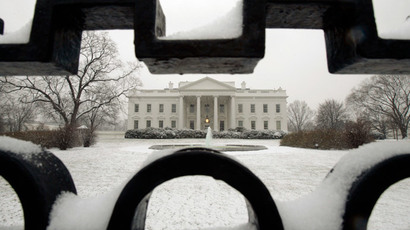Senators want CIA torture report declassified

Members of the US Senate Intelligence Committee have called for declassifying sections of a report on the CIA’s post-9/11 torture program. The demands come days after contents of the report were leaked, showing the CIA lied about their tactics’ efficacy.
Senate Intelligence Committee members Susan Collins (R) and Angus King (I), both from Maine, made public their feelings of the panel’s 6,300-page report days before the full committee is expected to vote on declassification. Should the panel vote for disclosure, it would be left to the White House to decide what is eventually released.
“This inhumane and brutal treatment never should have occurred,” the senators said in a joint statement. “Further, the report raises serious concerns about the CIA’s management of this program.”
Sens. Collins and King – a political independent who aligns with Democrats – said they back transparency with their call for public release, though they do not necessarily endorse all of its conclusions or methodology.
“Torture is wrong, and we must make sure that the misconduct and the grave errors made in the CIA’s detention and interrogation program never happen again,” their statement said.
The senators’ announcement gives bipartisan support before the vote. President Obama has said he wants to make public some version of the committee’s findings on CIA activity following the attacks of September 11, 2001.
“The president is the head of the Executive Branch and, under executive order, is the ultimate decision-making authority on declassification,” a congressional aide with the committee told Reuters. “Further, he has spoken publicly on his views.”
The report is the culmination of reviewed materials compiled by an internal CIA audit of around 6.2 million pages of emails, operational cables, and other secret documents made available to the committee in a secret electronic reading room at the CIA’s Langley headquarters.
Though the White House has voiced support for the committee’s efforts, it has also withheld over 9,000 top-secret documents from the Senate investigation. The White House told McClatchy earlier this month that a “small percentage” of the six million-plus pages of documents given to the committee were “set aside because they raise executive branch confidentiality interests.” The White House added that it had worked with the committee “to ensure access to the information necessary to review the CIA’s former program.”
Findings from the report were leaked to The Washington Post this week. Sources familiar with the report said the committee had found that the CIA lied to the government and public about its post-9/11 anti-terror operations – most notably by distorting intelligence gleaned from traditional, FBI-led interrogations as that attained by far more brutal CIA methods.
According to the Post’s anonymous sources, millions of records make clear that the CIA was able to obtain most of its valuable intelligence against Al-Qaeda, including the whereabouts of Osama bin Laden, without the use of so-called “enhanced interrogation techniques.”
As has been reported elsewhere, intelligence gathered from a detainee known as Abu Zubaydah was obtained by FBI sources, mainly agent Ali Soufan, in a hospital in Pakistan before the CIA waterboarded Zubaydah 83 times. Yet Soufan’s work was passed through US intelligence sources as though it was part of CIA interrogators’ work, the Committee’s report found.
“The CIA conflated what was gotten when, which led them to misrepresent the effectiveness of the program,” said another US official who has access to the report. The officials described the continued repetition of these misstatements as “the most damaging” of the committee’s conclusions.
The committee’s report also involves new information into torture methods employed by the CIA. Outside of beatings and wall-slammings, one detainee was also subject to repeated dunking in a tub of ice water.
The report has been the subject of intra-government wrangling and hand-wringing since December 2012, when a final draft of the study was completed.
Committee chair Dianne Feinstein took to the Senate floor weeks ago to claim the CIA had spied on the committee’s investigators as it compiled its review, highlighting an ongoing feud between the agency and the committee since the probe began in 2009.
The CIA has, in turn, claimed that the US Justice Department and Senate investigators accessed some agency records without authorization.














